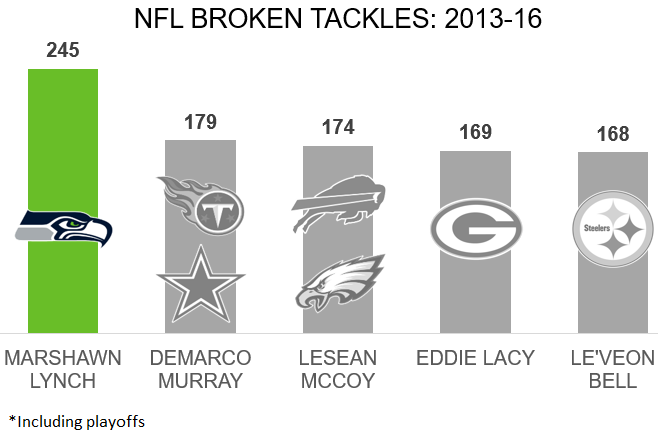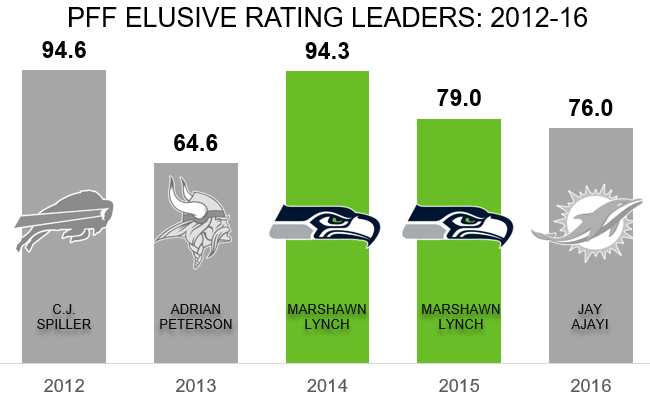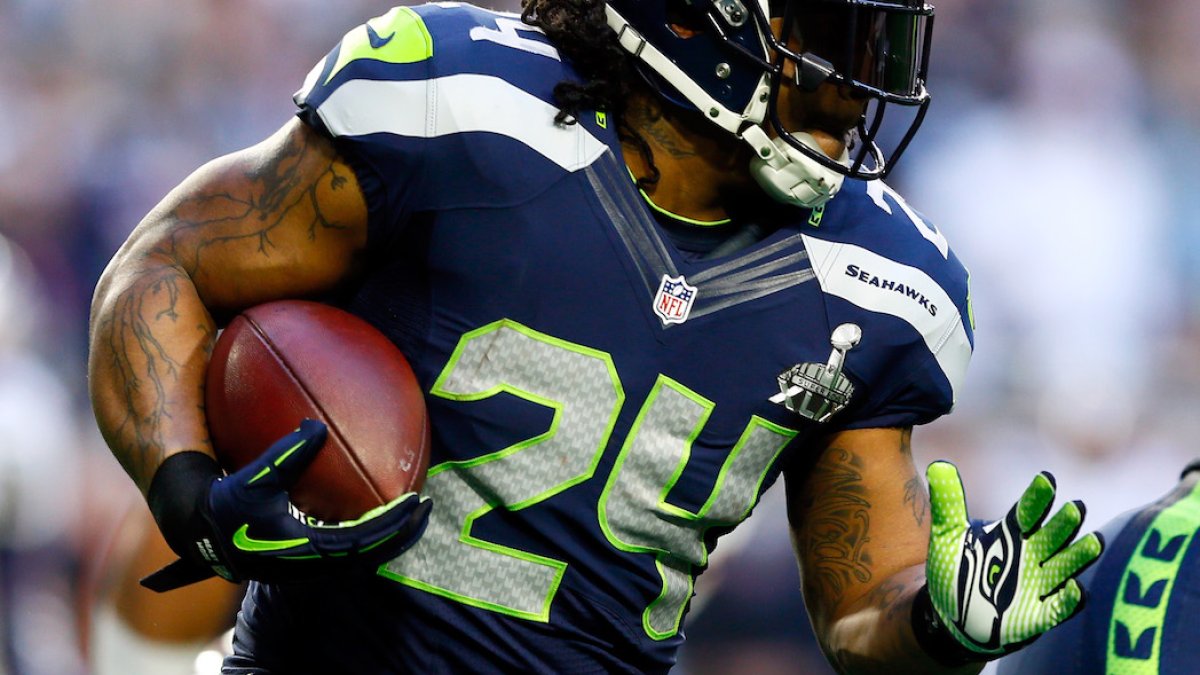Retired running back Marshawn Lynch reportedly visited the Oakland Raiders' facility yesterday, making the prospect of him un-retiring to play for his hometown Raiders even more likely.
What does Lynch bring to the table as a running back? In a word: Beastmode. Over the past 10 years, Lynch broke tackles like no other runner in the league.

The famous playoff run against the New Orleans Saints that created the “Beastmode” phenomenon was really emblematic of a style Lynch has had for years, and encapsulates how difficult it has been for tacklers to get him on the ground.
Looking at all running backs since the 2013 season, Lynch leads the NFL in broken tackles (by a clear 66 broken tackles).
In 322 carries, Ezekiel Elliott broke just 36 tackles last season — 30 shy of the margin that Lynch leads the league by over the past four seasons of play.
That would be impressive by itself, but Lynch didn’t suit up in 2016 at all — he was retired. He leads the league by a season’s worth of missed tackles, and he didn’t play in one of the seasons included. Not only that, but in 2015, he only played in eight games and carried the ball just 117 times due to injury.
Oakland’s running backs as a group last season combined to break 52 tackles, which isn’t a bad total, but is less than half the best mark Lynch has managed over a season.
Lynch also has another 42 broken tackles to his name as a receiver over that span, and thanks in large part to those numbers, led the league in elusive rating his final two years in the league, and was fourth in 2013.

Schematically, the two offenses use similar run-concept distribution, so Lynch won’t be stepping into the unknown if he does sign with the Raiders. Last season Oakland used inside-zone, gap and outsize-zone concepts 72.1 percent of the time, while Seattle was up at 87.4 percent. The difference between the two teams is that the Raiders employ pulling linemen a little more, with a few more plays of power and counter in the offense, but the vast majority of the run plays Lynch would run in Oakland would be immediately familiar to him.
Injuries limited Lynch’s final season in Seattle, but when he was on the field, he was still effective, and for his final few years in the Pacific Northwest, he was running behind one of the worst offensive lines in football. Oakland, on the other hand, has assembled one of the best, which should only aid his production.
If the Raiders can convince Lynch to come out of retirement for one last go around in 2017, this offense suddenly looks terrifying for opposing defenses, assuming QB Derek Carr can come back from injury at the same level he was playing at in 2016.



 © 2025 PFF - all rights reserved.
© 2025 PFF - all rights reserved.